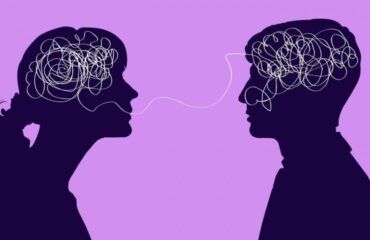
Right throughout the turn of the century the South African cricket team was the most powerful and the team to beat in the cricketing world. But despite being the best team and despite doing the best among all teams during the preliminary stages of most of the World Cups they would end up losing in the crucial knockout matches with the result that they are yet to win even a single World Cup till date.
All of us would also have encountered such situations in our life. We would be making a very important presentation for which we would have practiced multiple times with the result that all the slides and pointers and by heart to us. But on the important day on the stage, we lose the flow and forget the flow of the presentation mid-way through the flow of the presentation.
Or we would be performing a dance or a cultural event for with we have practiced very hard and with all our heart but mid-way through the dance we forget the next steps and are lost on stage. The same happens during a driving test or at times when you suddenly go blank while trying to recollect someone’s name or remember something during a serious discussion.
This event which happens in some of the most crucial events in our life when we were fully prepared to give our best and struggle when at the point of delivery is called choking. This happens to every one of us at different points and different stages and situations.
To understand this better let’s understand how the human performance system works. A complex interaction of three factors is at the heart of the human performance system.
1. Physical stimulation
2. Thoughts
3. Behavior
While performing under the critical situations that we highlighted in the beginning of the article there is a pressure already built up on us. To add to the same, we perceive that your survival depends on the outcome of this pressure moment which leads to creation of more anxiety and fear into the situation which makes the moment even more threatening. This leads to us losing control of our physical stimulation thinking ability and the capability to execute the behavior that you wanted to.
While improper functioning of any of the three above parameters can lead to choking happening the most prevalent reason is memory system malfunction which either causes you to forget information that you need at that moment or prevent you from executing your task which you have successfully performed several times being it in cultural events, an important game, or a presentation.
As already mentioned in some of my earlier article’s links of which are attached below:
The human memory has 2 components.
1. Conscious memory of part of the brain which we use for performing conscious tasks. So, when we are learning a new task like driving it is this part of the memory of brain that is being used. This part of the memory is believed to be located in the brains prefrontal cortex.
2. Subconscious memory which performs majority of the tasks that we do on a daily basis or rather all tasks that we have mastered.
Both these memories must work in tandem when we are performing those important tasks and even if one of them fail to perform at the optimum level it leads to a choke.
What has been observed is that for well-rehearsed tasks and things that we do naturally at a particular pace on a regular basis slowing down your performance and focusing on the mechanics goes against our required performance levels and can lead to a choke. I have found this happening several times with my driving. Am normally someone who drives at a fast pace without being rash. Whenever I try to become more careful and focused with my driving, I end up having small, small mishaps which under normal conditions wouldn’t have happened. This is the same reason which makes choke during a well-rehearsed cultural or sporting event or during an important but well-rehearsed presentation.
At the same time slowing down in situations where we need better judgement, crucial decision making and problem solving helps us reach a better decision and prevents us from choking at the critical moment.
Consider this situation where you are in an important discussion with your client. You have rehearsed on all the points that can come up for discussion and are already well prepared in handling all the objections that are likely to come up.
Mid way during your discussion you find that someone from the client side who is always good at raising objection raises his hand to signal that he has a point to make. In some cases, some of them might even interrupt your ongoing discussion.
Since this person has put you down earlier though you are fully prepared to handle each situation you start worrying what is he going to ask and creates a lot of worry and anxiety in you which eats up most of the available conscious memory capacity.
Since the capability of the conscious memory is limited this anxiety or worry uses up most your memory capacity. In such cases if you can slow down your responses and clear out the anxiety and focus only on the objections your conscious memory will be able to work at its full capability and get the queries handled.
So, to prevent these memory systems from malfunctioning and leading to a choke situation we need to learn and incorporate two skills.
1. To prevent worries and concerns created by fear and anxiety from entering into our conscious or working memory.
2. Learn to leave the subconscious memory alone and let it do the tasks that is very well versed in doing regularly.
To understand how we could develop these skills so that the same becomes part of our routine do subscribe to my LinkedIn newsletter Rejo’s Biz Bytes and visit my website www.rejofrancis.com.



